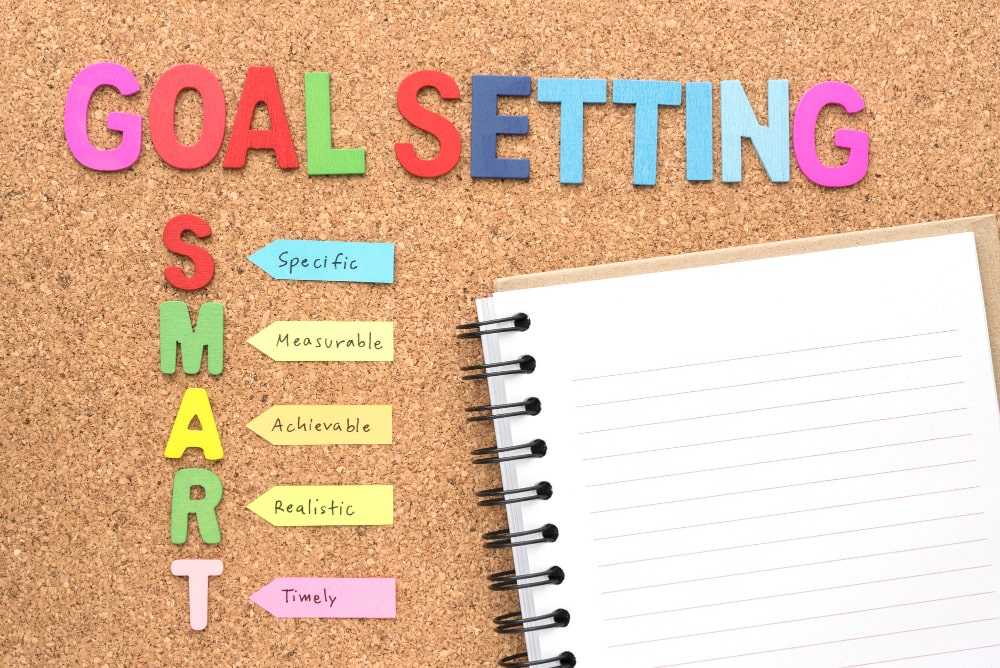Do you ever feeling like there aren’t sufficient hours in the day? Do you want to better your time management skills? Juggling a job, family obligations, self-care, and more can be exhausting, and it’s easy to feel overwhelmed by all the responsibilities. Thankfully, time management skills can – and should – be learned to make life easier! In this blog post, we’ll share some simple tips on how to manage your time better so you can enjoy life without feeling completely burnt out. Keep reading to see how small changes do add up when it comes to managing your time!
What is time management?
Time management is the process of planning and organizing time to make the most effective use of it. It involves setting goals, prioritizing tasks, scheduling time, and using time efficiently. By effectively managing time, you can create a balance between work, play, and other aspects of life that are important to you.
Time management allows you to be more productive and successful in your professional and personal life. Additionally, time management helps reduce stress by allowing you to focus on the things that matter most and not worry about the time spent on unnecessary tasks or activities. With effective time management skills, one can become an organized individual who is able to accomplish goals and complete tasks with greater efficiency.
Importance of time management
Time management is important because it allows individuals to effectively plan and organize their time in order to accomplish their goals and objectives. By managing time effectively, individuals can increase their productivity and efficiency, reduce stress and anxiety, and improve their overall quality of life.
Additionally, time management can also lead to better work-life balance, improved relationships, and greater job satisfaction. Effective time management can be especially important for students, professionals, and business leaders, as it can help them meet deadlines, achieve success in their careers, and reach their full potential.
Here are 10 ways to improve your time management skills; include
1) Set clear goals and priorities for each task
Having clear goals and priorities for each task is essential when managing your time effectively. When setting goals, make sure you are realistic in terms of what you can achieve in the given timeframe. Set a timeline to complete tasks without feeling overwhelmed or overworked.
Break tasks into smaller chunks and assign priority levels to them – this will help keep your focus on important tasks before tackling less pressing ones. Once each task has been assigned a priority level, it’s important to stick with those priorities throughout the process of completing each task.
This will ensure that nothing falls through the cracks and that all necessary steps are taken in order to reach your goal efficiently and on time. Finally, don’t forget to bonus yourself after completing each task! Celebrating your successes is the best method to stay motivated.

2) Creating a to-do list and schedule for each day
Creating a to-do list and schedule for each day is an effective way to improve your time management skills. Here’s an example of how you can create a to-do list and schedule for each day:
1) Start by making a list of all the tasks you need to complete for the day. Be sure to include both personal and professional jobs.
2) Prioritize your tasks by listing the most important ones at the top of your list.
3) Estimate the amount of time each task will take to complete and add this information to your list.
4) Use a calendar or planner to create a schedule for the day, starting with your most important tasks. Be sure to leave some time for breaks and unexpected interruptions.
5) Set reminders for yourself throughout the day to ensure you stay on track.
6) At the end of the day, review your list and schedule and make any necessary adjustments for the next day.
7) Repeat this process every day, and you’ll be able to manage your time effectively.
3) Use a timer or stopwatch to track the time spent on each task
Using a timer or stopwatch to track the time spent on each task is essential to successful time management. This helps you better understand how long it takes you to complete tasks and gives you a better understanding of your progress and any areas where improvements can be made.
Tracking the amount of time spent on each task also allows you to plan and allocate more or less time for different tasks in order to improve efficiency. Setting up a stopwatch can help break down complex projects into smaller achievable goals, which makes them easier to achieve.
It will also allow you to measure how much time is left for other tasks that need completing, allowing for better planning and scheduling. Using a timer or stopwatch can have many benefits when managing your time – from increasing productivity to reducing stress levels.

4) Eliminate distractions, such as email notifications and social media
Being aware of what can distract you from getting your work done is an important part of effective time management. Eliminating distractions, such as social media and email notifications, can help you stay focused on the task at hand and accomplish more in a shorter amount of time. To do this, turn off push notifications on all your devices and limit the time spent checking emails or scrolling through social media feeds.
By taking proactive steps to reduce distractions during working hours, you will be able to increase your productivity and make better use of your time. Being free from constant distractions helps you develop creative solutions and strategies for problem-solving. Eliminating distractions is a great way to improve your focus, become more productive, and make the most of your time.
5) Break down larger tasks into smaller, manageable chunks
Breaking down larger tasks into smaller, manageable chunks is an effective way to manage your time. By doing this, you can prioritize the most important tasks and break them into smaller parts to complete them faster and more efficiently. This helps you focus on one task at a time instead of trying to juggle multiple larger ones. Additionally, it allows for better planning ahead so that each task is completed without disruption or delay.
To break down larger tasks, start by identifying the goal of the project or task and then make a list of all the steps needed to reach that goal. Break these steps into tiny pieces so you can easily work on one small portion at a time until completion. Once you’ve made a plan for how you’re going to break down the larger task, set a timeline for each step and stick with it.
Read More: How to Improve Your Appearance: Ten Best Practices
6) Use the Pomodoro Technique to focus on one task at a time
The Pomodoro Technique is a popular productivity system developed by Francesco Cirillo in the 1980s. It uses short, timed work intervals to help people focus on one task at a time and be more productive. The technique consists of breaking down tasks into 25-minute sprints (called “Pomodoros“) with brief breaks between each sprint.
This cycle helps keep people motivated and focused on their work without feeling overwhelmed or bogged down. After completing four Pomodoros, it’s important to take a longer break (15–30 minutes), so you can recharge and come back invigorated.
The Pomodoro Technique has been proven effective in helping people manage their time and focus on one task at a time. It increases productivity, reduces stress, and helps people stay organized. Additionally, it allows for a more accurate estimation of how long tasks will take to complete by breaking them down into smaller chunks of time rather than tackling them all at once.
7) Delegate tasks to others when possible
Delegating tasks to others can be a great way to improve your time management skills. Delegation can free up your time and allow you to focus on more important tasks or projects. When delegating tasks, there are several key factors to consider:
Recognize the job that needs to be done:
Before delegating any task, it is important to identify which specific task needs to do. This will help ensure that the person you are delegating the task to understands exactly what they need to do.
Delegate the right level of responsibility:
It is important not only to identify the right task but also to delegate the appropriate level of responsibility when assigning a job. Delegating too much responsibility can be overwhelming for a person while delegating too little can lead to mistrust.
Delegate the right amount of time:
Delegate tasks that are doable in the given amount of time. If a task requires more effort than you expect it to take, break the task into smaller chunks and delegate each chunk separately.
By delegating tasks appropriately, you can free up your own time and focus on other important projects or activities. Delegating tasks is essential to time management and should use whenever possible.
8) Learn to say no to unnecessary commitments
Sometimes, it can be hard to say no, and people may feel guilty for turning down requests. However, learning how to do this is essential for effective time management as it helps you focus on more meaningful tasks without distractions. Here are some tips that can help you learn to say no when needed:
1. Understand why saying ‘No’ is important:
Think about the reasons why you need to say ‘no .’This could include having a tight schedule, feeling overwhelmed, or wanting more quality time with family and friends. Understanding these reasons will help strengthen your commitment to saying ‘no’ in the future.
2. Learn how to politely decline commitments:
When declining commitments, try using phrases like “I’m sorry I can’t commit to this right now but thank you for considering me.
3. Negotiate:
If you don’t want to completely decline an offer, try negotiating a more reasonable outcome. This could involve doing one task rather than all of them, shortening the timeline, or suggesting someone else who is better suited for the job.
4. Say no with confidence:
Learn how to be assertive and say ‘no’ with confidence. It’s okay to express your feelings and boundaries without feeling guilty. Once people notice you’re serious about saying ‘no,’ it will be easier for both parties as they won’t feel like they’re wasting their time.
By learning how to say ‘no’ to unnecessary commitments, you can free up more time for the things that matter most to you and improve your time management skills. So take a step back, find ways to politely decline requests, and focus on what really helps you reach your goals.
Read More: Top 10 Benefits of Time Management: A Comprehensive Guide
9) Taking regular breaks
Taking regular breaks is one of the most important strategies to improve your time management skills. Not only does it give your mind and body a much-needed rest, but it also helps reset your focus and productivity levels. Taking even a few minutes every hour or two to get up and move around can help boost your energy levels and clear away the mental fog.
It’s also an opportunity to reflect on what you’ve done so far, adjust plans as needed, and recharge for the next task. Whether it’s a quick stroll outside, a stretching session at your desk, or a 10-minute yoga routine in the afternoon, taking regular breaks throughout the day will greatly benefit your physical and mental well-being.

10) Continuously evaluate and adjust your time management strategies
The importance of continuously evaluating and adjusting your time management strategies cannot overstate. By doing so, you can identify when something isn’t working and take action to make the necessary changes. This will help you improve your time management skills and become more productive.
You may want to start by breaking down big projects into smaller, more manageable tasks.
Prioritizing tasks based on their urgency or importance can also help you stay focused on the things that matter most. It’s important to create a realistic timeline for each task, as this can keep you from feeling overwhelmed or losing track of what needs to do.

